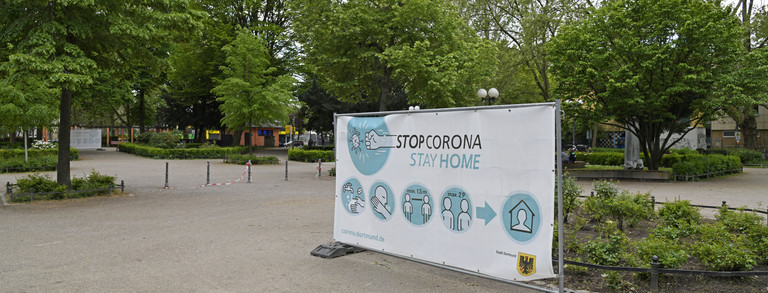Second Consortium Workshop (30th Nov to 1st Dec 2022)
A second consortium meeting took place in presence on 30th November and 1st December at TU Dortmund University. The consortium partners from the University of Cape Town and the Federal University of ABC were in attendance for the two days. Each partner institution was represented by two researchers. The aim of the workshop was to follow up on the initial online workshop that took place on the 8th and 9th June and to determine the follow up steps of the project.
The situation analysis of Covid 19 in each of the case study cities was first assessed to identify points of comparison where timelines for the research could be determined. The timelines were agreed based on three categories: T1 - Before Covid 19; T2- During lockdowns; T3 - After Covid 19 (from April 2022). These timelines would guide the assessment of the research in each of the work packages and would be applicable for the different methodologies applied in the research. This is in accordance with the first Milestone (Milestone 1) of the research which targets to develop a framework for the work packages and comparative methodology.
The team developed a common understanding of marginalisation and of marginalised groups across the three cities. Following extensive discussions, the team came to an understanding that marginalised groups varied across the cities and a homogenous definition was not possible. A framework was developed to determine the target group of the research which was: a) degree of marginalisation - households of low income and intersectional reasons for marginalisation and b) location and connectivity - two case study neighbourhoods in each city, one that is better connected to public transport services, the other in the periphery in order to make comparisons.
Having defined the timelines and the target group, the team then discussed each of the work packages and its execution. It was agreed to make changes in the order of the working steps. As opposed to a nested approach, where the completion of one work package would result in the start of another, it was agreed to execute each work package separately while having overlaps between them i.e. the work package (criticality assessment) may run parallel with the work package (mobility biographies). This would ensure that the research is conducted within the allocated time frame.
The team then agreed on a publication strategy that would ensure output at various stages of the research. Each consortium partner would take the lead for various topics of the research with other team members as co-authors. Seven proposals of articles and relevant journals were proposed and it was agreed to publish four compulsory articles within the timeframe of the research.



